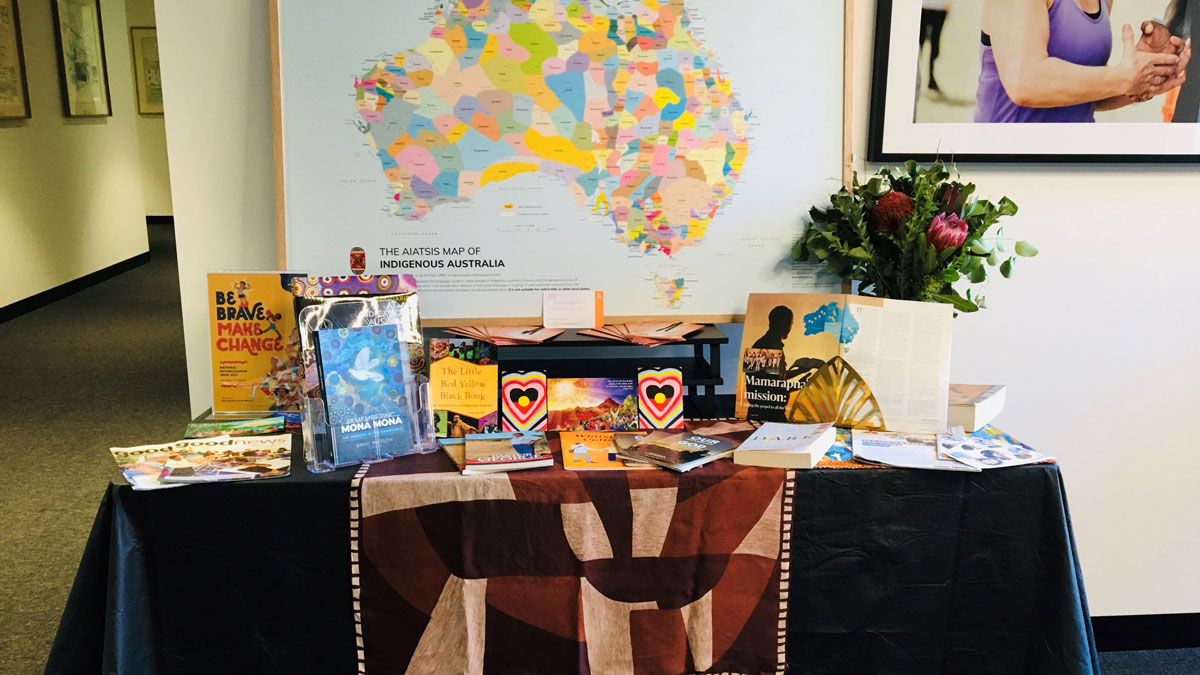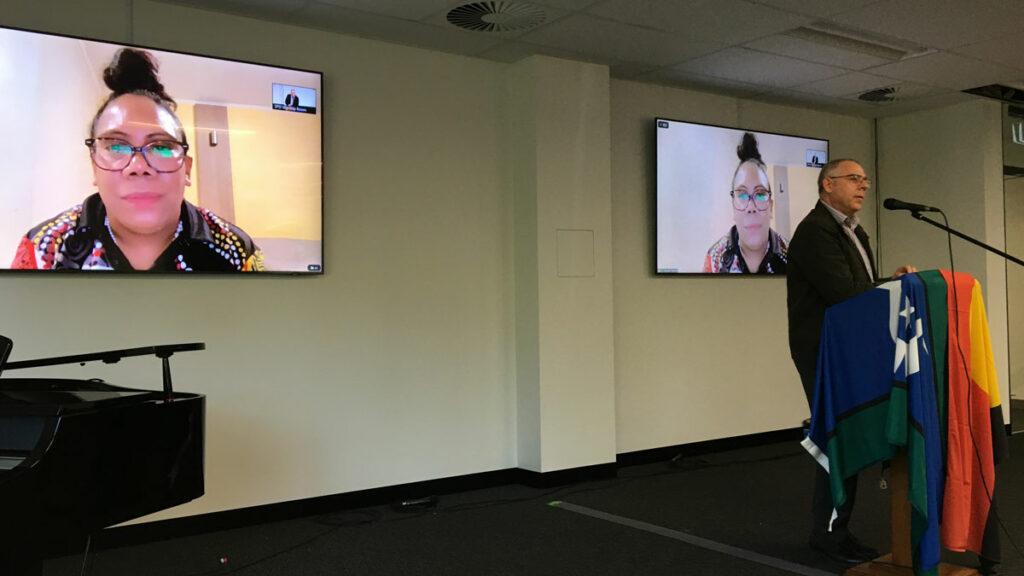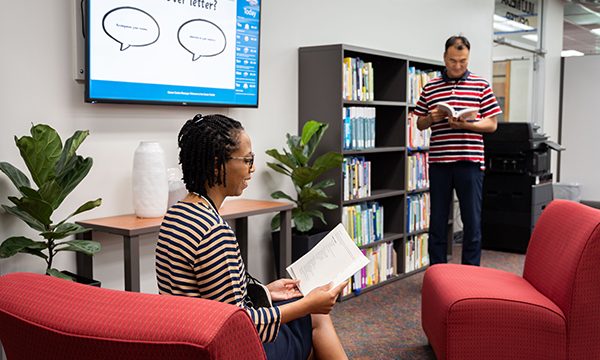Church leaders invited Aboriginal and Torres Strait Islander speakers to make presentations.

The South Pacific Division (SPD) of the Seventh-day Adventist Church has once again taken part in National Reconciliation Week (May 30–June 3) with a line-up of Aboriginal and Torres Strait Islander speakers.
The guest speakers led out in staff worships and provided training and presentations on how different departments are partnering with Aboriginal and Torres Strait Islander Ministries (ATSIM) at the Australian Union Conference (AUC).
Organized by the SPD Ministerial Association, morning devotionals were taken by ATSIM director Darren Garlett, ATSIM senior remote-area pastor John Beck, Bible worker at Brewarrina Doreen Murphy, and Mamarapha College ministry coordinator Connie Tonga.
“The SPD has such an influence in its regions abroad but also right here in Australia,” Garlett said. “It’s great to see them leading the way to having better cultural understanding of First Nations people. We have been sharing our culture since the first day of school and will continue to as long as people are willing to learn. Through this learning comes understanding, empathy, and unity. Australia needs healing, and through these opportunities of cultural exchange the church will be strengthened.”
A display table with learning and sharing resources was set up in the worship room during the week, providing materials including free ATSIM Acknowledgement of Country bookmarks.
Murphy said she was touched to be able to share some of her personal story tied to devotional thoughts during the May 31 session. “Doors are opening for people to be educated on how hard our lives are,” she said. “And God is touching hearts to be a part of our healing. We have longed so much for this. We need loving hearts to help First Nations people see that the only solution to our pain is Jesus Christ.”
“The week of worships was a real blessing to me personally,” SPD People Services manager David Potter said. “It was encouraging and inspiring to hear and see a little of the work of ATSIM for the Aboriginal and Torres Strait Islander people in Australia.
“The church is blessed to have such talented and dedicated people working to spread the gospel to Aboriginal and Torres Strait Islander peoples,” Potter added. “The challenge they gave during the week was how can I/we be involved in the work of ATSIM? What can I/we do to support that work?”

During the week, a lunch-time training program was offered on Zoom videoconference, led by Garlett and Beck, entitled “A Fast Guide to Aboriginal Culture.” The session, attended by about 100 leaders from across the SPD, provided some great insights into Aboriginal culture and tips for engaging with and understanding Aboriginal and Torres Strait Islander peoples better. The session was conversational, and there were a lot of comments and questions in the chat line that Garlett and Beck answered for the final 15 minutes of the session.
The session covered topics like the meaning of country and acknowledgment to country, understanding the right terminology to use when referring to Aboriginal and Torres Strait Islander peoples, identifying an Aboriginal person and what Aboriginal identity means, as well as sharing how to find out more about Aboriginal culture and history.
Other church organizations, schools, and conferences reached out for the recording to share with staff and students.
After the morning worships, a short time was devoted to sharing how church leaders are working with ATSIM. For example, SPD’s Darius Jankiewicz is teaching a theology segment at Mamarapha College in Western Australia. Greg Pratt reported on a cultural training rollout to South Queensland Conference teachers and pastors. Brendan Pratt provided an update on the AUC’s Reconciliation Action Plan, launched in May 2022, and ADRA’s Brad Watson reported on the book he edited about Mona Mona, an Adventist Aboriginal mission.
Speaking about the AUC’s Reconciliation Action Plan, Brendan Pratt said, “It’s not something we can leave to a department of the church, but all of us have to take responsibility for reconciliation. In our ministry areas, [it means] going about that in a way that honors Christ by reconciling to each other.”
The original version of this story was posted by Adventist Record.








